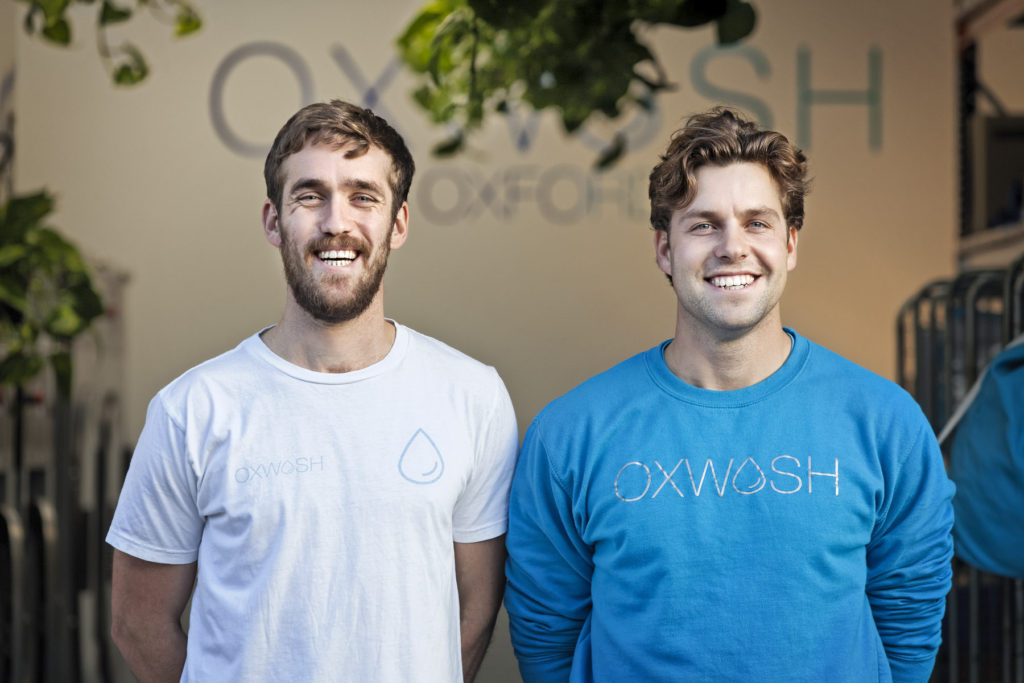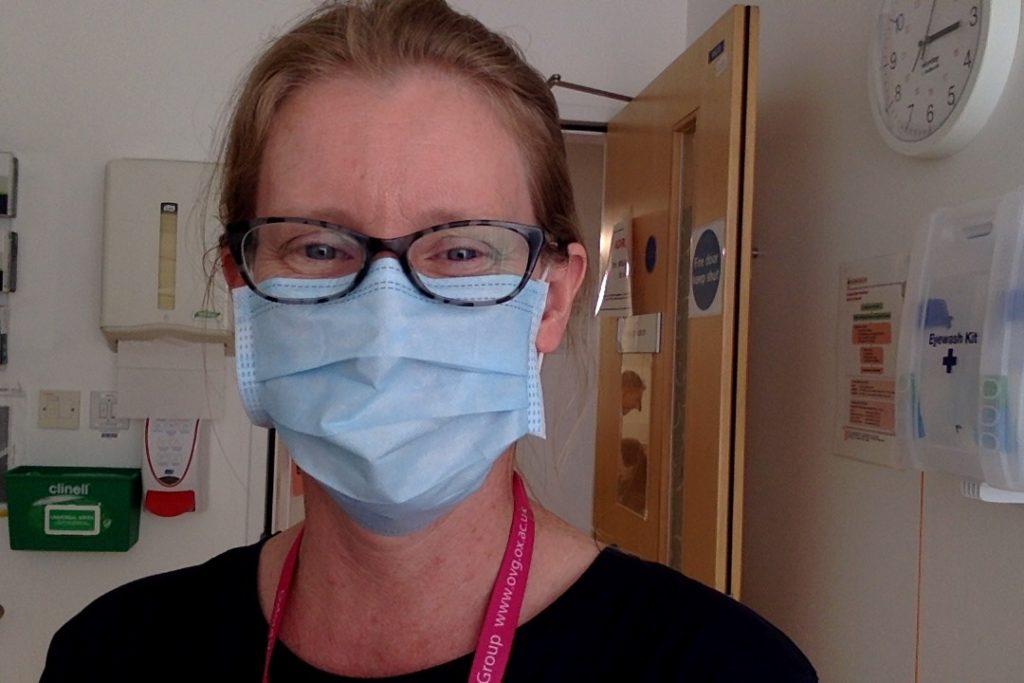Oxwash at 28 Beaumont St GP surgery in Oxford. Pic: Oxwash
Oxford eco-laundry service pivots to support health professionals in Covid-19 pandemic
The Oxford Vaccine Group, working with the Jenner Institute on the Covid-19 trials, is one of the health organisations using laundry services by Oxwash, the eco-friendly start-up which has responded to the pandemic by doing everything it could to keep operating while providing help where it was needed. But laundering textiles for medical use means sterilising them and this is not necessarily compatible with the low carbon technologies Oxwash had installed. TechTribe Oxford asked Oxwash chief operating officer Tom de Wilton how the firm faced the challenge.
Then came Covid-19, and with it the sudden, unanticipated and colossal health issues around laundry services. A nationwide lockdown followed and with it the closure of all non-essential businesses, including the hotels, Airbnb’s and restaurants on which Oxwash largely depended.
“Ninety-five per cent of our revenue disappeared overnight,” recounted de Wilton, as most of the firm’s hotel, restaurants and AirBnB customers were forced to close.
“When the virus hit we stopped washing at 20 degrees completely,” he said. “We also had many significant conversations around whether we should be open at all, and if so how do we ensure the safety of staff, our customers and the wider community.

Tom de Wilton and Kyle Grant. Pic: Oxwash
“Covid can remain on textiles for up to 72 hours, so we started washing at 60 degrees in line with NHS guidelines on sterilisation.” But this move endangered the firm’s consumer market too, as most clothing items cannot survive washing at such high temperatures.
Oxwash was keen to service the health sector, but needed to crack the issue of washing to clinical standards and to achieve sterilisation with minimal-to-zero harm to the environment. De Wilton says that the challenge made the team think about eco-friendliness in a different way:
“Our focus before was on sustainability, and now we are looking at the challenge of combining sustainability with sterilisation. Everyone knows that if you throw heat at something, you can kill most things, but the energy use is unacceptable.”
The challenge was figuring out how to achieve ‘hygiene with sterilisation’, as de Wilton explained: “There are three ways to achieve sterilisation in laundry – thermally, chemically or with ozone gas.”
Using all three requires a delicate balance, he said: “The chemistry is the most expensive part of the wash, followed by the energy consumption, so just doubling the amount of chemicals in a wash would make the cost too high. And ozone can only be used at low temperatures. It has a half life of approximately two minutes, but is denatured if the temperature goes above 25 degrees. So pumping ozone gas into a 60 degrees wash cycle is pointless.”
The answer was to extend the wash cycle, which now begins with a low temperature ozone rinse, followed by the high temperature wash with chemical mix and finished with a final ozone rinse. The chemical formula was developed with manufacturer Ideal, and disinfects at higher and lower temperatures without phosphates and chlorine-based substances.
Other measures de Wilton mentioned were the use of dissolvable laundry bags to enable items to be handled without touching: “Once in contact with water, the bag dissolves and releases the wash into the machine,” he said.
Senior research nurse at Oxford Vaccine Group, Maria Moore, explained the service Oxwash is providing: “Some of the trial participants may display symptoms of Covid in which case they need to be seen and have a nasopharyngeal swab taken. To minimise the risk of infection the team wear scrubs when seeing symptomatic participants.
“When we have scrubs to be collected we give Oxwash a call and they pick up each afternoon and bring them back the next day. all fresh, clean and ironed.”

Maria Moore, Oxford Vaccine Group. Pic supplied
Moore said that she recommended Oxwash after using them herself: “I found it all to work really smoothly. When we needed to set up a laundry service for the trial they were the first people I thought of. I think the service is excellent; everyone is very friendly and accommodating. I like the fact that it is a local start-up with fantastic eco-credentials. Using state-of-the-art bicycles and bike trailers in Oxford which has a huge traffic problem just seems like the best way of managing an efficient delivery service.”
Coincidentally, de Wilton has been selected to take part in the vaccine trials himself, after passing the lengthy screening criteria. He was without a doubt the only participant who collected a bundle of laundry when he attended his first appointment.
Oxwash is also working with health centres and GP surgeries around Oxford such as 28 Beaumont St in Oxford (see featured pic). While not without its pain, the experience of responding to Covid-19 has propelled the firm into the health sector faster than it could have anticipated. De Wilton confirms the team aims to go further and is working towards BS EN 14065, the recognised standard for bio-contamination control in textile laundry, which would put Oxwash in the frame for larger NHS contracts. The health service, which data from the Committee on Climate Change reveals is responsible for 5.4% of UK carbon emissions, aims to cut its carbon output by 30% by 2022, so Oxwash’s environmental credentials could give it elbow room among larger competitors.
The £1.4 million investment round was successful, and Oxwash is now faced with pursuing its goals in a world that has changed immeasurably since de Wilton and Grant pitched to investors at Oxford Foundry. The new funders are helping the firm to re-evaluate its growth strategy and Oxwash has decided to revise its plan for regional cities and focus on the metropolis: “Responding to Covid-19 and looking forward,” explains de Wilton, “we realised we need to launch in London sooner rather than later.
“There’s a lot of demand on laundries right now, and the traditional commercial operations will be hard hit [by the pandemic]. If there’s a hole, someone will fill it and we’re in a great position to do that.”
ENDS
